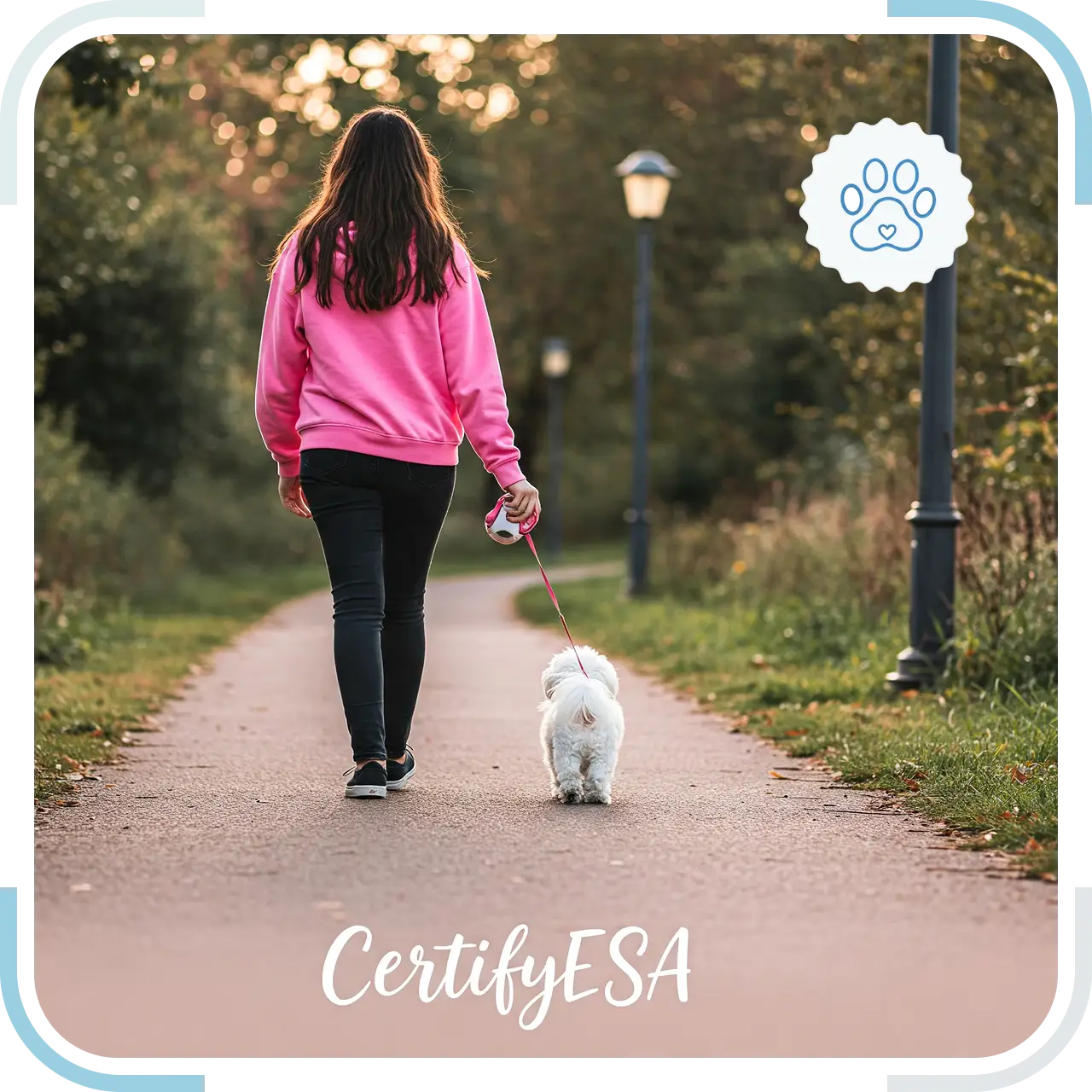ESA Letter in California
In California, individuals seeking the companionship of an Emotional Support Animal (ESA) must navigate specific legal requirements to obtain a valid ESA letter. This guide provides a comprehensive overview of the process, ensuring you understand each step and how services like CertifyESA can assist you.
Understanding Emotional Support Animals
An Emotional Support Animal (ESA) provides comfort and support to individuals with mental or emotional conditions. Unlike service animals, ESAs are not required to perform specific tasks but are recognized for their therapeutic benefits.
Legal Framework in California
California law mandates certain criteria for obtaining a valid ESA letter:
-
Licensed Professional: The letter must be issued by a licensed mental health professional (LMHP) practicing in California.
-
30-Day Relationship: There must be an established client-provider relationship of at least 30 days before the letter is issued.
-
Official Documentation: The letter should be on the professional’s official letterhead, including their license number and contact information.
These requirements ensure the legitimacy of the ESA letter and protect both the individual and housing providers.
Steps to Obtain an ESA Letter in California
1. Consult a Licensed Mental Health Professional
Begin by consulting with a California-licensed LMHP. This can be your current therapist or a new professional. The key is to establish a therapeutic relationship that spans at least 30 days.
2. Undergo a Mental Health Evaluation
The LMHP will assess your mental or emotional condition to determine if an ESA is a beneficial part of your treatment plan.
3. Receive the ESA Letter
If deemed appropriate, the LMHP will provide an ESA letter that includes:
-
Confirmation of your mental or emotional condition.
-
A statement that the ESA is a necessary part of your treatment.
-
Details about the animal, such as species and breed.
Ensure the letter is signed, dated, and includes the LMHP’s license information.
Benefits of Having an ESA Letter
An ESA letter provides several legal protections and benefits:
-
Housing Rights: Under the Fair Housing Act, landlords must make reasonable accommodations for individuals with ESAs, even in properties with no-pet policies.
-
No Pet Fees: Landlords cannot charge additional pet fees or deposits for ESAs.
-
Air Travel: While recent changes have affected ESA travel rights, some airlines may still accommodate ESAs with proper documentation.
How CertifyESA Can Help
Navigating the process of obtaining an ESA letter can be daunting. CertifyESA simplifies this journey through a streamlined three-step process:
1. Online Assessment
Complete a confidential online questionnaire to evaluate your mental health needs and determine if you qualify for an ESA.
2. Connect with a Licensed Professional
CertifyESA connects you with a California-licensed LMHP who will conduct a thorough evaluation and establish the required 30-day relationship.
3. Receive Your ESA Letter
Upon approval, you’ll receive a legitimate ESA letter that meets all California legal requirements, ensuring your rights are protected.
By choosing CertifyESA, you benefit from a trusted network of professionals, ensuring a hassle-free experience in obtaining your ESA letter.
Conclusion
Obtaining an ESA letter in California involves specific legal steps designed to protect both individuals and housing providers. By understanding these requirements and utilizing services like CertifyESA, you can ensure a smooth process, granting you the companionship and support of your Emotional Support Animal.
References
-
ADA.gov. (2023). Service Animals. Retrieved from https://www.ada.gov/topics/service-animals/
-
California Civil Rights Department. (2022). Emotional Support Animals and Fair Housing Law. Retrieved from https://calcivilrights.ca.gov/wp-content/uploads/sites/32/2022/12/Emotional-Support-Animals-and-Fair-Housing-Law-FAQ_ENG.pdf
Note: This blog post is intended for informational purposes and should not be considered legal advice. For specific legal concerns, please consult a qualified attorney.




